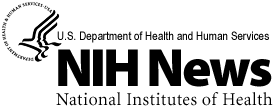| National Conference to Examine Effects of
Dietary Supplements in Patients Taking Blood Thinning
Medications
Leading Experts will Discuss Current
Knowledge, Assess Need for Clinical Guidelines
The National Heart, Lung, and Blood Institute will
convene a conference this week to evaluate the risks
of interactions between dietary supplements and prescription
blood-thinning medications which are used by four
million Americans to ward off heart attack or stroke.
Experts from the National Institutes of Health and
the Food and Drug Administration will join academic,
patient advocacy and industry representatives to assess
current knowledge, identify strategies for clinical
guidelines, and determine opportunities for further
research.
The NIH Conference on Dietary Supplements, Coagulation,
and Antithrombotic Therapies will be held January
13 and 14, 2005, at the Masur Auditorium of the National
Institutes of Health (NIH) in Bethesda, Maryland.
It is sponsored by the National Heart, Lung, and Blood
Institute (NHLBI), in collaboration with the Office
of Dietary Supplements (ODS), the National Center
for Complementary and Alternative Medicine (NCCAM),
the NIH Clinical Center (CC), the National Institute
of Neurological Disorders and Stroke (NINDS), the
NIH Foundation, and the Office of Rare Diseases (ORD)
at NIH.
“With up to 52 percent of the U.S. population
reporting dietary supplement use, it is important
that we fully understand how these substances can
affect widely-used drugs, such as warfarin and aspirin,”
said NHLBI Acting Director Barbara Alving, M.D.
To date, there have been few systematic examinations
of the effects of dietary supplements when taken with
prescribed anti-thrombotic (anti-coagulant or anti-platelet)
therapies. According to the Natural Medicines Comprehensive
Database, approximately 180 dietary supplements have
the potential to interact with warfarin, a common
blood thinner, and more than 120 may interact with
aspirin, and other anti-platelet agents such as clopidogrel,
ticlopidine, and dipyridamole. Dietary supplements
include herbal remedies, vitamins, minerals, other
botanical products, fibers, amino acids, proteins,
organ tissues, and metabolites for digestion.
Known interactions with prescribed anti-coagulants
and their effects include:
- Anise and Dong Quai have anti-coagulant effects;
- Omega 3-fatty acids in fish oil, ajoene in garlic,
ginger, Ginkgo, and vitamin E have anti-platelet
properties;
- Fucus and Danshen can have a heparin-like blood
thinning effect;
- St. John’s Wort and American Ginseng alter
drug metabolism; and
- Other supplements, such as high dose vitamin E,
Alfalfa, and Coenzyme Q10 may affect blood clotting.
“We plan to obtain a variety of perspectives
on this issue so that we have a better understanding
of managing patients’ drug regimens,”
said Ahmed Hasan, M.D., Ph.D., medical officer with
NHLBI’s Division of Blood Diseases and Resources.
“It is important to increase our knowledge on
this issue so that we may better inform and educate
our patients,” he added.
Selected presentations:
• New Tools and Methodologies for Research and
Clinical Practice
(Friday, January 14, 8:00 a.m.)
This session will address methods and best practices
for researching and monitoring interactions in patients
using dietary supplements.
• Panel of Experts: Opinions and Research Priorities
(Friday, January 14, 10:30 a.m.)
This multi-disciplinary panel will explore known drug
and supplement interactions including anecdotal evidence,
and develop an inventory of research needs.
• Public Health Concerns: Facts, Fictions, and
Gaps in Knowledge
(Friday, January 14, 1 p.m.)
This section will include presentations on the perspectives
of academia, the FDA, and the dietary supplement industry
to assess the need for clinical guidelines.
• Dialogue with Patient Care Organizations
(Friday, January 14, 2:45 p.m.)
Speakers for this session include representatives
from the Platelet Disorder Support Association, the
National Consumers League, the American Medical Association,
the American Society of Hematology, the American Heart
Association, the American Herbal Products Association,
the American Society of Clinical Nutrition, the American
Dietetic Association, and the American Society of
Health System Pharmacists.
Details and agenda for the conference are available
at http://www.nhlbi.nih.gov/meetings/coagulation/index.htm.
Reporters can register onsite at the conference or
in advance by contacting the NHLBI Communications
Office at (301) 496-4236 or nhlbi_news@nhlbi.nih.gov.
To request an interview with a conference speaker,
please call (301) 496-4236.
Following the conference, a bibliography will be available
at http://ods.od.nih.gov.
Resources:
http://www.nhlbi.nih.gov/
http://ods.od.nih.gov/
http://nccam.nih.gov/
http://clinicalcenter.nih.gov/
NHLBI is part of the National Institutes of Health
(NIH), the Federal Government's primary agency for
biomedical and behavioral research. NIH is a component
of the U.S. Department of Health and Human Services.
Additional information about heart, lung, and blood
diseases and NHLBI-supported research and educational
programs are available online at the NHLBI website,
www.nhlbi.nih.gov.
|

